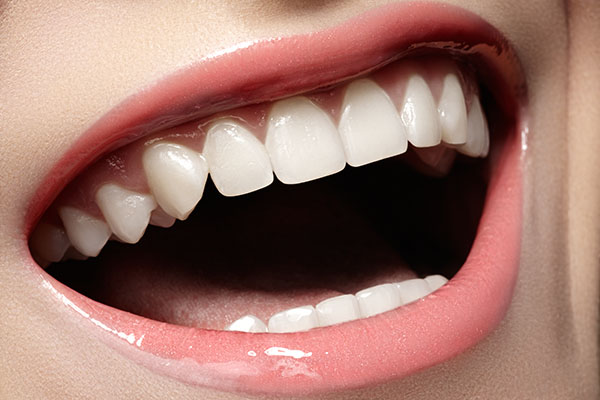Blood Pressure Medications and Your Gums

Blood pressure medication can affect many parts of the body, including the gums. The gums may seem largely disconnected from a medication meant to control the circulatory system. In fact, gum health and blood pressure are closely related. Although this medication can negatively affect the gums, educating yourself is the first step in counteracting any unpleasant symptoms.
What is high blood pressure?
Put simply, high blood pressure (also known as hypertension) is a condition where the heightened force of blood rushing through arteries begins to put a strain on vessel walls. Blood pressure issues build up over a long period of time as it climbs. When blood pressure is high enough, it begins to cause health problems such as heart disease.
Measuring blood pressure is determined by two factors: The amount of blood pumped by the heart and the amount of resistance to blood flow within the artery. For example, if the blood is pumping at a higher rate through a narrower channel, blood pressure is high.
How does blood pressure medication work?
Anti-hypertensive drugs may not cure high blood pressure, but these drugs are a very important ingredient in maintaining a healthy lifestyle. There are multiple medications out there to control high blood pressure.
Diuretics, for example, are usually the first type of drug prescribed. These aid in the functionality of your kidneys to take salt and water out of the body. Once this happens, you will have less overall fluid in your arteries, lessening pressure on the walls.
Beta-blockers slow down the heartbeat and therefore makes blood flow through the arteries with less force. Alpha-blockers halt nerve signals attempting to tell your blood vessels to narrow, causing the channels to relax and blood to flow more freely. ACE inhibitors are another popular option which prevents your body from producing a hormone that causes vessels to tighten.
How does high blood pressure medication affect gums?
Those who suffer from high blood pressure may experience several side effects related to medication. For instance, calcium channel blockers are a type of hypertension medication known to cause gum overgrowth. When this troubling symptom advances, chewing can become difficult and proper cleaning becomes near impossible.
With enlarged gums, it is easier for bacteria to settle under the gumline. Even after a deep cleaning, plaque starts to build up and gum disease can take hold. Mild cases of gum disease, in early stages called gingivitis, can progress into a more serious condition called periodontitis. At this point, gum tissue starts to fail and tooth loss can occur.
Keeping your gums healthy
Enlarged gums are at a higher risk for inflammation. The best way to counteract susceptibility to infection is by employing a rigorous daily oral hygiene routine. Gum overgrowth is exacerbated by bacterial attacks, so cleaning the area thoroughly each day and night is the best defense against swelling.
Removal of plaque will suppress this symptom. Brush your teeth meticulously every morning and night. Be sure to clear the areas between teeth with floss once per day before brushing at bedtime.
Never miss a dental cleaning, either. Having your teeth professionally cleaned by a dentist every six months will clear plaque you may have missed.
The bottom line
Following these steps will ensure your gums are healthy no matter what medication you may be taking.
Request an appointment here: https://www.carolinasmilesdentist.com or call Carolina Smiles Family Dental at (828) 974-3326 for an appointment in our Brevard office.
Check out what others are saying about our services on Yelp: Read our Yelp reviews.
Recent Posts
Your dentist might recommend dental bonding if you are unhappy with your smile. This article explains how long this restoration will last and what influences its lifespan. Whether you have had a tooth gap for years or have recently chipped a front tooth, even a little mistake will make you hesitate before smiling. However, before…
There is a brief window of opportunity in which an emergency dentist may be able to save a tooth that gets knocked out. The chances are better within 30 minutes after the injury and start to decrease after an hour, so prompt treatment is key. There are things you can do before seeing the dentist…
Dental bonding is a perfect idea to try if you require minor smile enhancements. Dental bonding is a fast, simple, and affordable way to enhance the appearance of your teeth while still protecting them from more damage if they have a chip or crack. This article talks about what makes dental bonding a great choice…
If you are unsure if dental bonding is right for you, then you can learn more about treatment during a consultation visit. This review discusses three questions you should consider asking your dentist about dental bonding to find out whether or not treatment matches your specific needs, goals, and treatment preferences.You may have additional questions…


